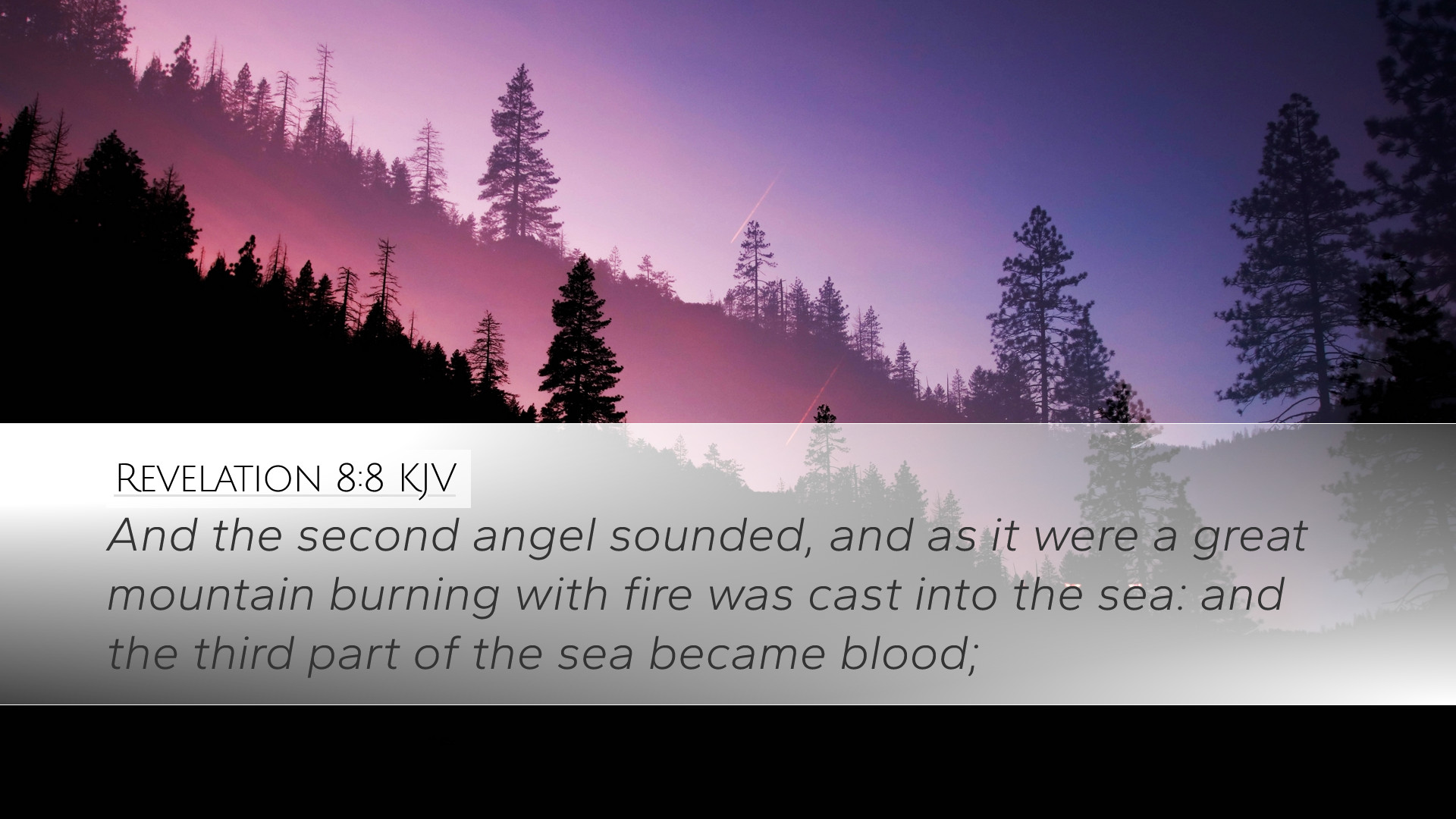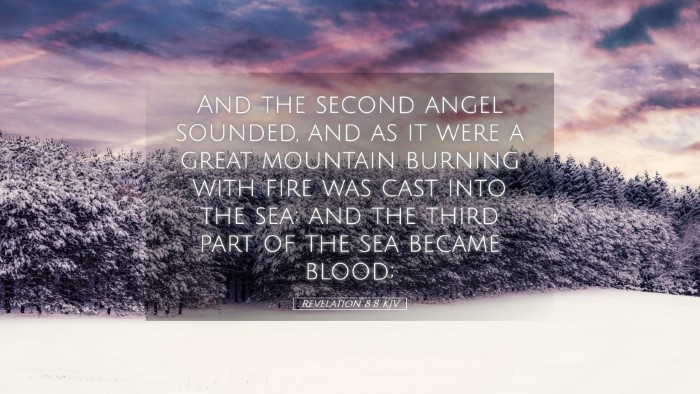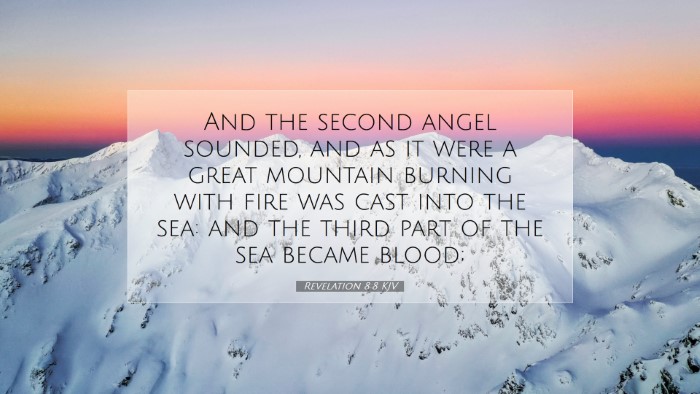Commentary on Revelation 8:8
Verse: Revelation 8:8 - "The second angel sounded, and as it were a great mountain burning with fire was cast into the sea: and the third part of the sea became blood."
Introduction
This verse is part of the apocalyptic discourse within the Book of Revelation, where John the Apostle conveys vivid and symbolic imagery pertaining to the end times. In Revelation 8, we witness the consequences of the second trumpet judgment. The imagery of a burning mountain signifies a catastrophic event that impacts creation itself, particularly the waters upon the earth.
Understanding the Symbolism
The "great mountain burning with fire" signifies not only a physical disaster but also represents a manifestation of divine wrath. Various commentators provide insight into its implications:
-
Matthew Henry:
Henry posits that the mountain symbolizes a significant power or kingdom, one that is utterly consumed by divine judgment. The imagery of fire emphasizes God's holiness and the purging of evil from the earth.
-
Albert Barnes:
Barnes interprets the mountain as representative of great nations or empires that, when judged, lead to calamity and loss, affecting not only the land but the seas as well.
-
Adam Clarke:
Clarke provides a more pointed observation about the effects of this imagery. He suggests that the mountain being cast into the sea depicts a loss of earthly security and stability, leading to chaos and turmoil among nations.
Theological Implications
The verse invites reflection on several theological themes:
-
Judgment:
The casting of the burning mountain into the sea illustrates the powerful judgment of God against human constructs that oppose His will. This evokes a sense of awe in God's ability to bring about transformation through judgment.
-
Transformation and Renewal:
The imagery suggests that out of destruction may arise a new order. As waters turn to blood, a stark contrast is drawn between life and death, highlighting God's sovereignty over life itself.
Impact on Creation
The third part of the sea becoming blood symbolizes a profound alteration in nature. Drawing from the insights of various commentators:
-
Matthew Henry:
Henry reflects on this transformation as a warning to humanity about the temporality of earthly systems and the eternal judgment to come, encouraging believers to remain steadfast in faith.
-
Albert Barnes:
Barnes emphasizes that the alteration of the sea reflects the effects of sin and rebellion against God. It shows that the consequences of human actions can pollute the world around them.
-
Adam Clarke:
Clarke urges readers to contemplate the implications of this judgment for mankind – suggesting that it is an unmistakable sign of divine displeasure that should prompt introspection and repentance.
Pastoral Insights
For pastors and spiritual leaders, Revelation 8:8 can be seen as a call to:
-
Proclaiming Truth:
Understanding and preaching this passage as part of the larger narrative of God's redemptive plan, emphasizing the need for repentance and awareness of divine judgment.
-
Encouraging Hope:
Offering hope rooted in God’s mercy even amidst the proclamations of judgment, reminding congregations of God’s ultimate intention for creation to be restored.
Conclusion
Revelation 8:8 serves as a powerful reminder of God’s sovereignty and the seriousness of sin. The vivid imagery compels readers to consider their relationship with God and the world. As churches continue to grapple with these profound truths, may they do so with a spirit of humility and reverence, seeking to embody the hope found in Christ amidst the revelations of judgment.


